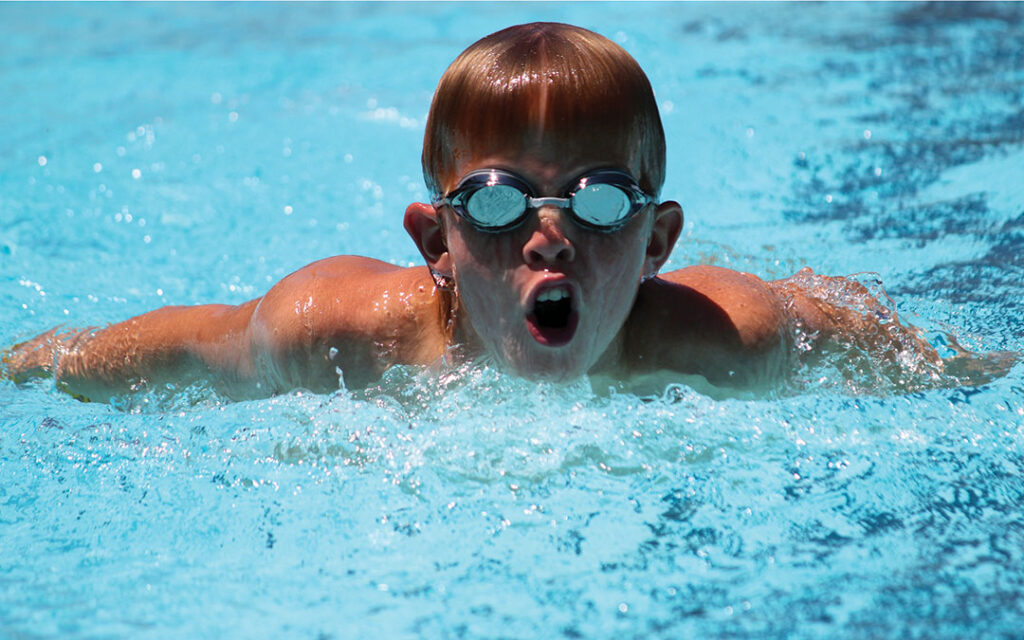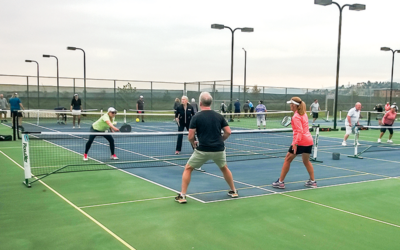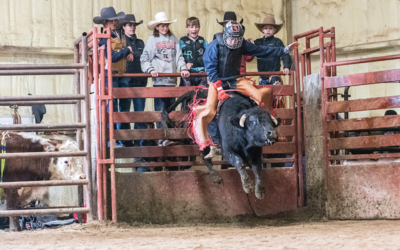Juliet Sheets has spent nine years as the girls’ basketball coach at Greeley Central High School and even won a state championship. She and her husband raised two girls (both of whom have gone on to coach basketball as well), and she attributes much of her success to playing sports as a kid.
“As a kid, sports really got me out of my shell, gave me a lot of confidence and, frankly, kept me out of trouble,” she says. “It gave me a group and a community to be a part of.”
Roughly 60 million U.S. kids ages 6-18 participate in organized sports each year, according to the National Council of Youth Sports. Coaches and parents say these extracurriculars get kids active and away from their screens, help them build confidence, teach them the importance of teamwork and so much more.

Juliet Sheets, Greeley Central High School basketball coach, in a huddle with her team.
“I advocate for sports for all kids, but especially for girls,” Sheets adds. “If you lined up 10 girls and 10 boys, I think you’d see the girls tend to be less confident and more introverted.”
Sheets says sports can help those kids develop social skills by learning how to play together as a team. Good coaches, she says, can also connect with kids about bigger issues that parents can have a hard time getting through to their kids about, like integrity, trust and honesty.
“When a coach tells them [these qualities] will make them better, they listen,” she says.
Starting them young
Dev and Tricia Multer of Greeley watched their two kids, Alex, now 25, and Cameron, now 23, become more confident and social when they signed them up for sports around age 6.
“They learned teamwork and leadership skills as well as how to compete, work toward a goal, accept criticism and praise gracefully and be good winners and losers,” Dev says of his kids, who focused on specific sports (Alex, swimming, and Cameron, baseball).
Gino Grasso, director of Pathway Baseball at Triple Crown Sports in Fort Collins, agrees that an early start in sports is beneficial for kids: “My daughters started playing soccer at age 6, and all they do at that age is run around and kick each other in the shins. It’s about them having fun.”

Cameron Multer
Some parents expect their kids to be the next Michael Jordan the first time they step on the court, Sheets says, but it’s important for them to lower their expectations, especially when they are just starting out.
“Everyone is kind of terrible when they are little. I mean, some kids might be better than others, but they aren’t good,” she says.
That’s perfectly OK, she says. What’s not OK is parents being hard on their kids or setting a bad example by yelling at referees and umpires.
Parents, play nice
During the pandemic, Grasso thought parents would be on their best behavior when they’d return to the stands to watch their kids play. He was wrong.
“They went the other way. It’s been a real issue,” he says. “Parents are running umpires out of the game.”
The problem with parents yelling at umpires has become so bad that they’re having a hard time finding ones who will put up with it. At Pathway Baseball, Grasso says they have meetings with parents about their behavior.
“I work with a lot of former major league players whose kids play at our events. Those guys don’t say anything, and they don’t bother their kids,” he says. “Pressure from parents is the best way to make [kids] drop out.”
Sheets says coaches also get a lot of flak: “Parents are hard on coaches. I don’t get too much grief, but I have friends that can’t say the same.”
Her message to parents is simple: If you want your coach to do a better job, be supportive.
“Learn to do the book and volunteer to do it. Learn to do the clock and volunteer to do it. Host a team dinner. Ask the coach if there’s anything you can do to make their life easier,” she says.
Letting them choose
Grasso says some parents try to live out their dreams of success on the field through their kids. That can put unhealthy pressure on them, especially if they’d rather play a different sport or join other activities instead.
“Sports isn’t for everyone. Embrace what your kid loves and listen to them,” Grasso says. “My kids liked sports, but they also liked the arts and cooking. One ended up as a chef and one is now a personal trainer.”
Sheets learned this from personal experience. Her parents wanted her to become a swimmer and gave her a hard time when she decided she didn’t want to do it.
However, she says there’s no harm in having your kids try different sports so they can discover which ones they enjoy. The Multers did just that: While Alex became a swimmer and Cameron became a baseball player, they also tried soccer, football, basketball, volleyball, golf, track, cross country and dance.
As kids get older and continue playing sports, they gravitate toward their favorites. Sheets says it’s still good to keep kids in at least two sports to prevent injuries from repetitive movements. Her daughter decided to play tennis and got some of her basketball teammates to join her.
“They had so much fun. It was a real mental reliever, and it was good for their overall conditioning,” she says.
These outlets are even more important for high schoolers as they face pressure from parents to get scholarships and attention from college scouts. While this is certainly the goal for some student athletes, signing contracts shouldn’t be the driving force behind keeping them in sports.
“We did it because the kids wanted to,” Multer says. “The time, expense, tears and joy were all worth it.”







